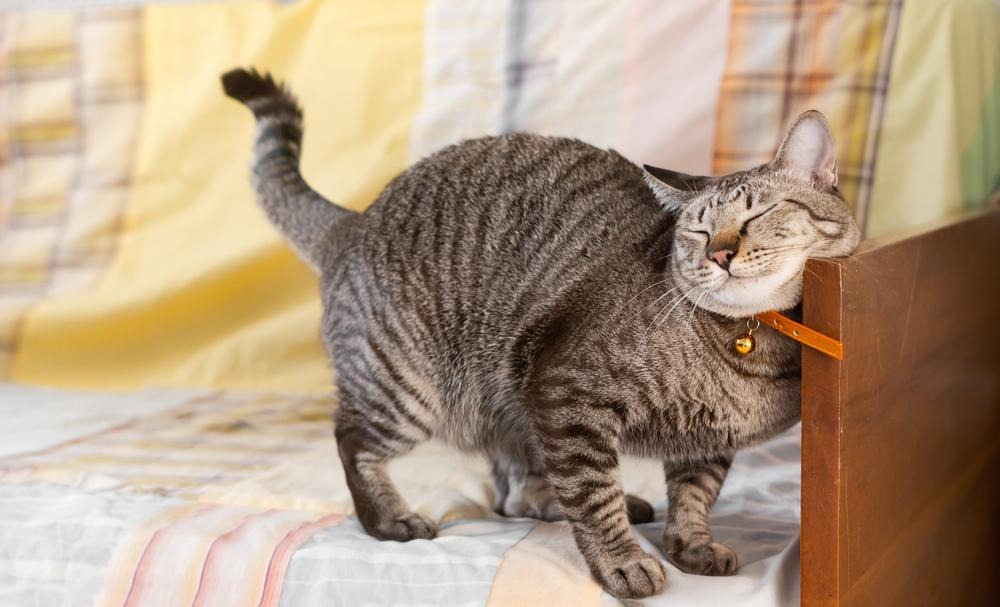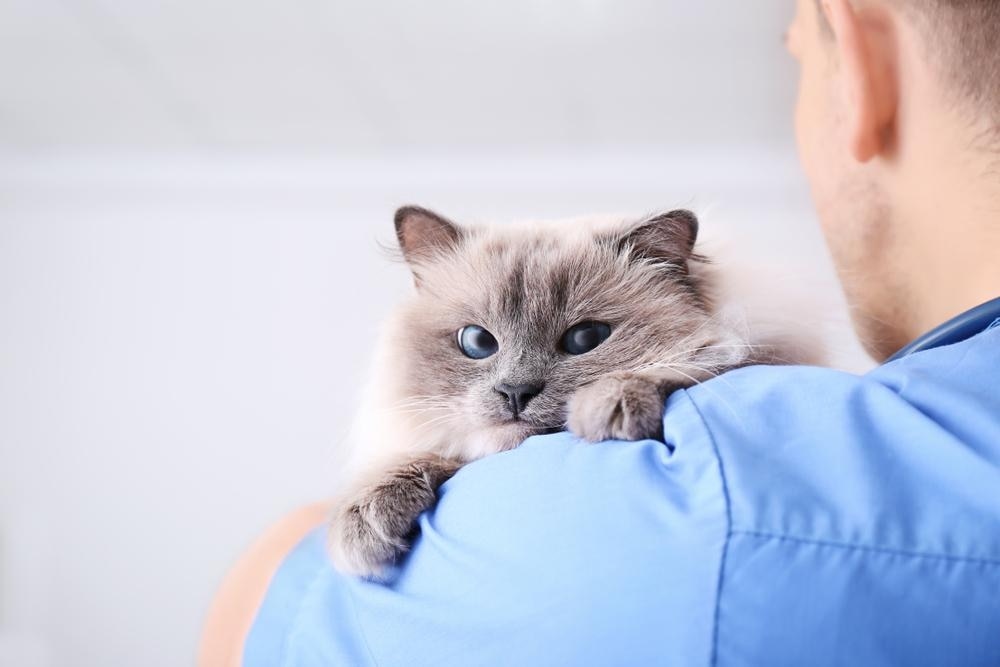

Signs of flaky or itchy skin in cats can be worrisome as a pet parent. After all, you want your cat to be comfortable, and you may wonder if they're suffering from dry skin. However, signs like these are typically secondary to other underlying issues, some of which are more concerning than others.
Let's explore why cats might experience dry skin, as well as what to look out for and how to help your cat feel better.
Signs of Cat Dry Skin
Dry skin can be challenging to recognize. However, mild or intermittent signs of dry skin can be associated with other general health issues, so it's important to discuss your concerns with a veterinarian. They can ensure your cat gets an accurate diagnosis and the right treatment plan to get them feeling their best.
Some common signs you may see in a cat with dry skin include:
Scratching, licking or chewing at their face and/or body
Flaky skin or debris in coat

Causes of Dry Skin in Cats
Dry skin can be caused by many different things. Environmental factors, allergies, parasites, and underlying conditions can all affect the skin. Even though these are all different causes, it's not uncommon for them to present with itching, scratching or skin rashes, making it challenging to identify. Receiving a professional diagnosis from your vet is the best way to discover the true cause of your cat's dry skin.
Allergies
Skin allergies occur when a cat's immune system overreacts to allergens such as fleas, certain foods or environmental triggers. A flea allergy is caused by a reaction to proteins in the flea's saliva, and unfortunately, even a few bites can lead to intense itching.
Environmental allergens may include trees, grasses, mold spores and dust mites — as well as less obvious culprits like plastics in food and water bowls, household cleaners and laundry detergents. These types of allergies often flare up seasonally if they're related to things in nature.
Food allergies, on the other hand, typically cause skin signs year-round and may be accompanied by gastrointestinal issues like vomiting, diarrhea or weight loss. According to Tufts University's Cummings Veterinary Medical Center, the most commonly reported food allergens in cats include chicken, beef, fish, dairy and eggs.
Pesky Parasites
Fleas, ticks and mites are common parasites that can irritate your cat's skin and lead to dryness and itchiness. Fleas are one of the most frequent culprits behind itchy skin in cats — making year-round flea prevention, under the guidance of your vet, a smart choice for all feline companions.
Ticks are less common in cats that remain indoors, but they can still show up, especially if you live in a wooded or grassy area and/or have other pets who spend time outdoors. Fortunately, many topical and oral preventive medications protect against both fleas and ticks, and combination products can be easily prescribed by your vet.
Mites, such as Demodex mites, feline scabies and ear mites, can also infest the skin and hair follicles, causing irritation and eventually more serious skin conditions if left untreated.
Fungal, Yeast and Bacterial Skin Infections
Fungal, yeast and bacterial infections are common skin issues in cats, each with its own underlying causes and implications. Ringworm is a common fungal infection that affects the nails, skin and fur of cats. It can be caused by several fungal species and can be zoonotic, meaning it can be transmitted from cats to humans.
Yeast and bacterial skin infections usually occur secondary to disruption of the skin barrier, skin allergies or impaired immune function related to other diseases, like autoimmune disorders or cancer. These disruptions create conditions that allow yeast and/or bacteria to overgrow on the skin.
Systemic Diseases
Some diseases that are systemic, meaning they affect the whole body, can result in dry skin or other skin signs in cats. Certain autoimmune diseases, viral infections, cancers, metabolic and endocrine diseases can affect the skin. For example, hyperthyroidism, FeLV, FIV, feline herpesvirus, and systemic lupus can all result in skin signs.
Preventing Cat Dry Skin
Because dry, itchy skin is often a result of another condition, there are several ways you can minimize the risk of your cat getting dry skin. By providing proper grooming, taking preventative measures with the support of your vet and making sure they get all the nutrients they need, you'll be able to foster a healthy lifestyle for your cat. This includes:
Regular brushing and grooming: This helps keep the skin and coat clean, reduces shedding and prevents matting. Some shampoos or topical sprays/foams are formulated specifically for sensitive skin, which can also help maintain a healthy skin barrier and coat.
Feeding a complete and balanced cat food: Completed and balanced cat food for dry skin is formulated with vitamin E and fatty acids to promote healthy skin and fur. If your cat has a food allergy, your vet may recommend a therapeutic cat food for dry skin, made from novel protein (never exposed to before) or hydrolyzed protein (broken down into small pieces).
Take preventative parasite measures: If your vet recommends it, using year-round flea and tick preventative medication can help reduce the risk of your cat experiencing skin issues due to parasites.
Visit your vet regularly: Routine veterinary exams help identify any issues before they become more concerning and give you time to ask them any questions regarding any skin concerns.
If you notice dry skin signs, act quickly: As with any issue, the quicker your concerns are evaluated, the sooner your cat can be on the road to feeling better.

Cat Dry Skin Solutions
When looking for dry skin solutions for your itchy cat, you may be tempted to turn to the internet for possible at-home or natural remedies. Please keep in mind that some oils, soaps and products that are safe for humans could be poisonous to cats, according to the American Society for the Prevention of Cruelty to Animals. Because of this risk, it's important to consult with your vet before trying any home remedies.
Fortunately, your vet has many options in their toolbox to help soothe your cat's skin — including nutrition, shampoos, topical sprays or foams and oral or injectable medications.
In some cases, itchy, red and irritated skin may be triggered by food sensitivities. If that's a possibility, talk with your vet about whether a therapeutic cat food might help.
Meanwhile, as you work toward resolving your cat's skin discomfort, be sure to keep your cat engaged with active play. This can help distract them from repeatedly scratching one area, which could otherwise become raw or infected. Adding a humidifier to your home to keep the air moist and encouraging your cat to drink plenty of water can also support overall skin hydration.
When your cat isn't feeling as cuddly or playful as usual because they're uncomfortable, it can be hard to know what to do. Thankfully, your vet is in your corner. Scheduling an appointment as soon as you notice problems gives your vet the opportunity to provide an accurate diagnosis and create a treatment plan to help your cat feel better quickly.






















